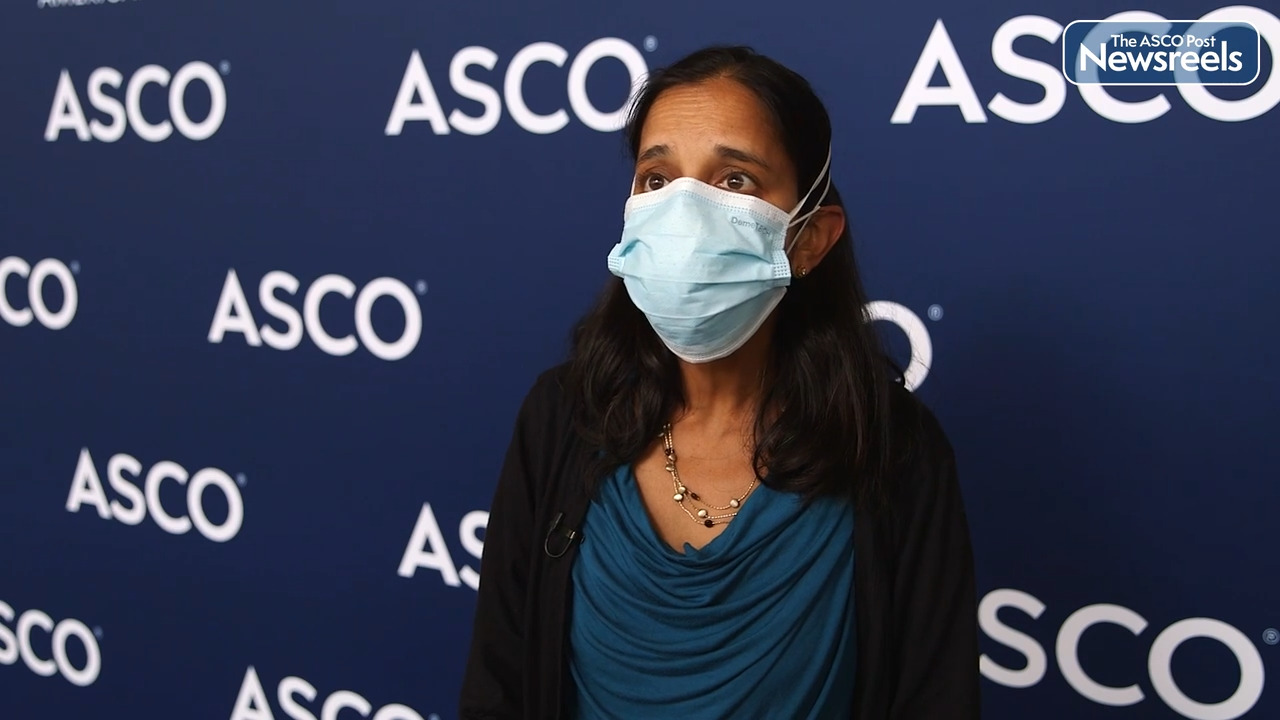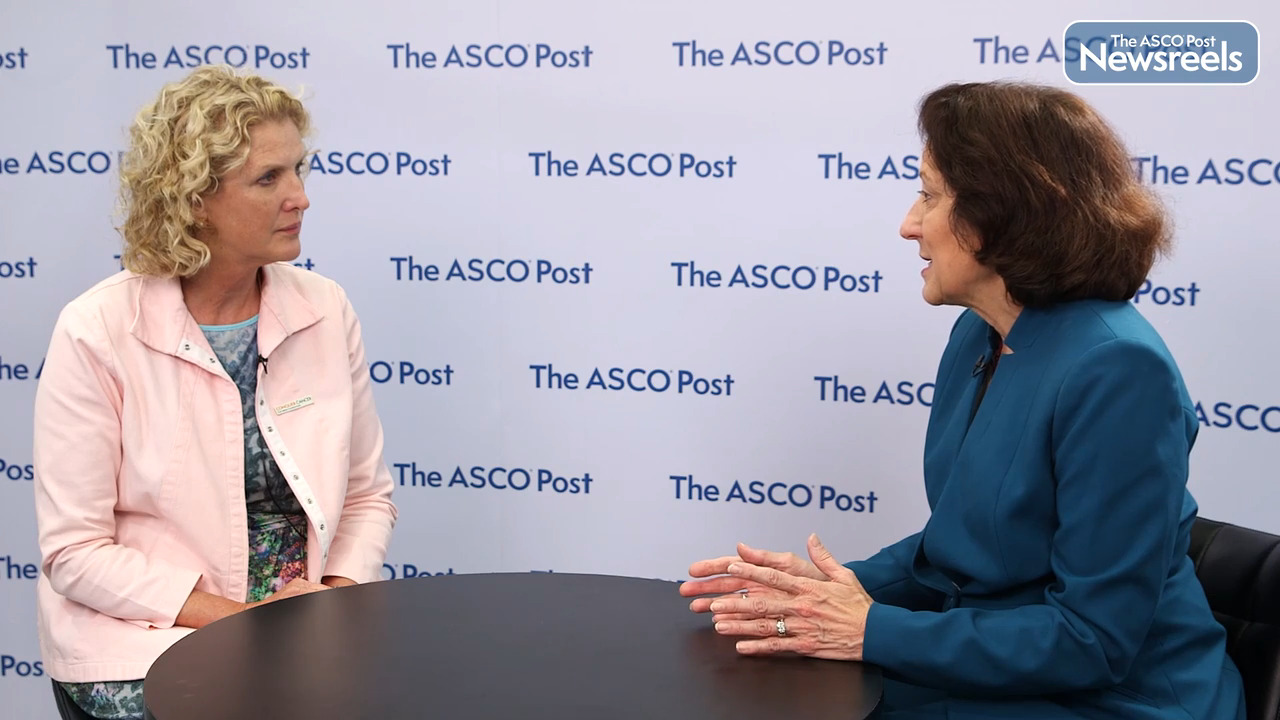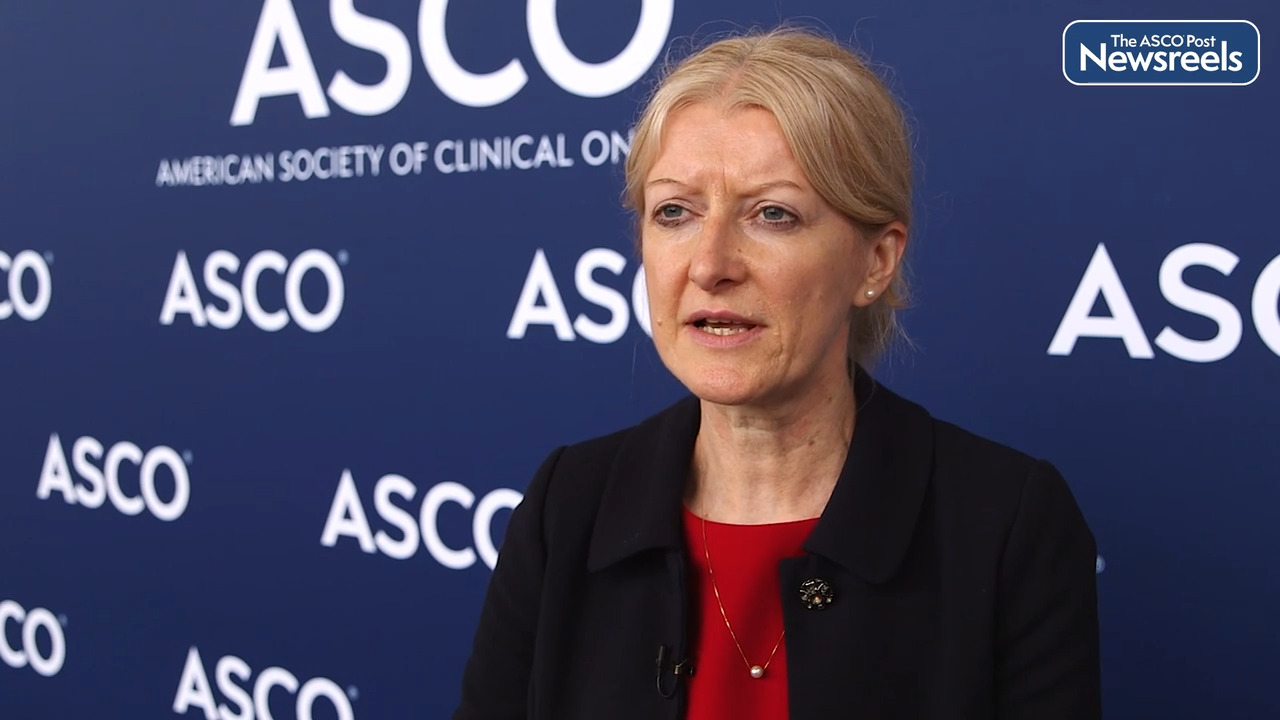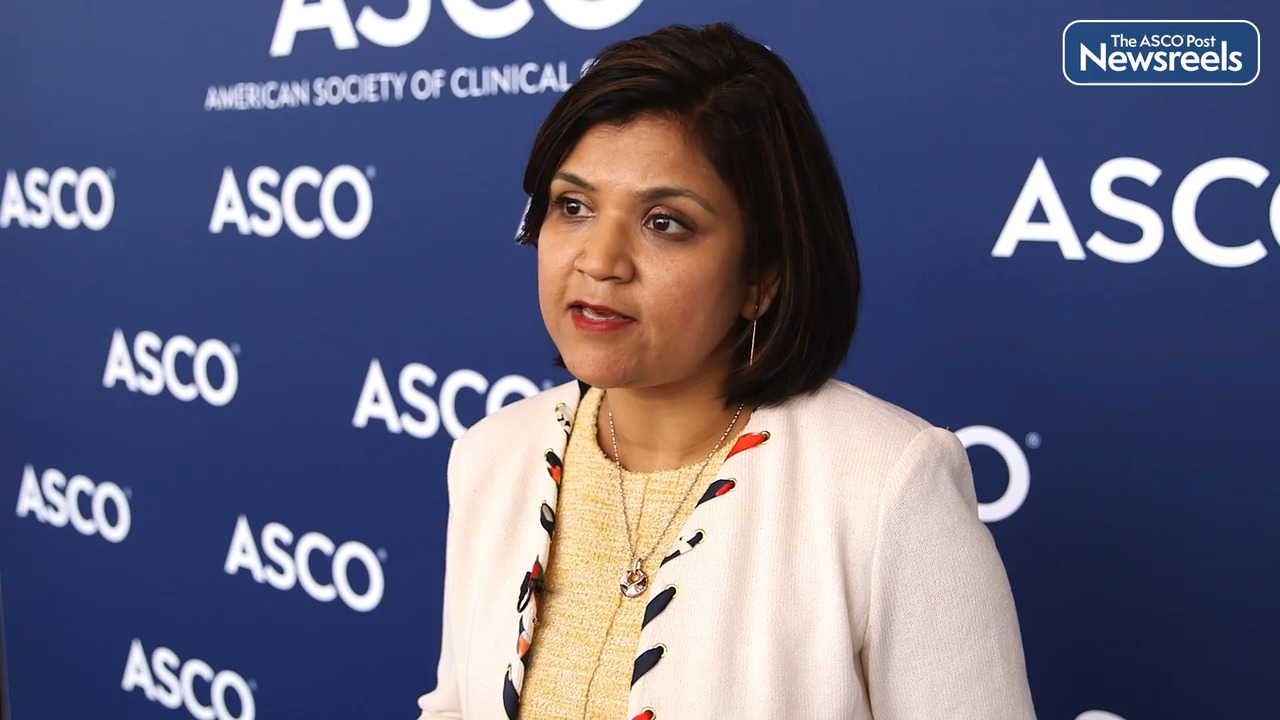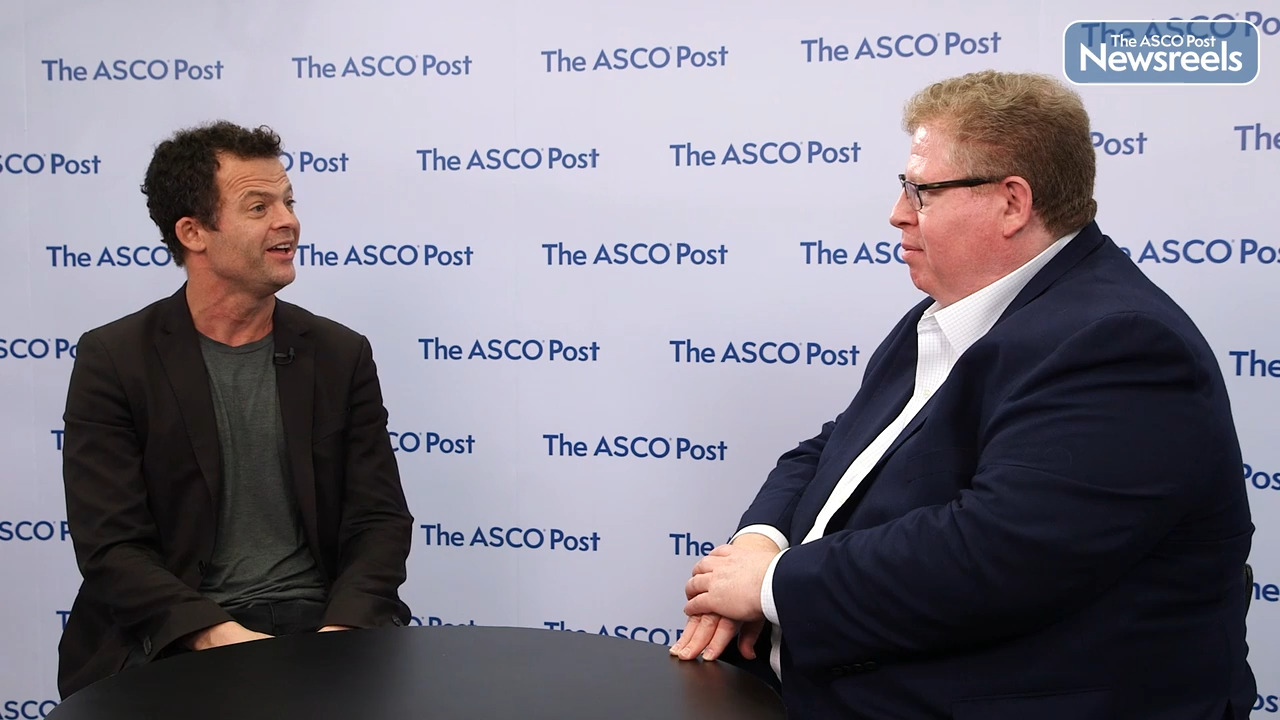Georgina V. Long, MD, PhD, on Melanoma: Distant Metastasis–Free Survival With Adjuvant Pembrolizumab
2022 ASCO Annual Meeting
Georgina V. Long, MD, PhD, of the Melanoma Institute Australia, The University of Sydney, discusses phase III findings from the KEYNOTE-716 study. The trial showed that compared with placebo, adjuvant pembrolizumab significantly improved distant metastasis–free survival in patients with resected stage IIB and IIC melanoma. The findings also suggest a continued reduction in the risk of recurrence and a favorable benefit-risk profile (Abstract LBA9500).
Transcript
Disclaimer: This video transcript has not been proofread or edited and may contain errors.
Keynote 716 is a phase three randomized trial of adjuvant pembrolizumab versus placebo in resected stage 2B and 2C melanoma. Historically from retrospective studies, stage 2B and C melanoma has been thought to be not as high risk as it actually is. In fact, many patients recur at 24 months and beyond, and these patients have very poor outcomes. So I'm reporting the distant metastasis free survival from this trial. We've previously reported on the relapse free survival on two previous analyses. And what we see is pembrolizumab significantly improves the distant metastasis free survival compared with placebo with a hazard ratio of 0.64, this represents a 36% reduction in the risk of recurrence, and a P value of 0.0029. This is highly significant. We also see on the 24 month and the 12 month landmark distant metastasis free survival rates, a significant increase compared with placebo of pembrolizumab. What's more in this study when we look at the subgroups, key subgroups, every subgroup favors pembrolizumab compared with placebo for the distant metastasis free survival, including the T subcategories 3B, 4A and 4B, as well as the US geographical region. We also see a sustained improvement in the relapse free survival. So at this analysis, this is the third analysis for the relapse free survival. It was the first for distant metastasis free survival. We see a hazard ratio of 0.64 and continued separation of the Kaplan-Meier curves for the relapse-free survival, meaning that adjuvant pembrolizumab significantly decreases the risk of recurrence for patients with resected stage 2B and 2C melanoma. So what are the next steps? The next steps are that we will continue to follow up with this trial and look at the overall survival benefit. In the design of this trial, we had crossover at recurrence. So patients were initially randomized to placebo versus pembrolizumab. But if they recurred, they were unblinded. If they were on the placebo arm or on the pembrolizumab arm, and they had their last dose of pembrolizumab six months or further prior, they were eligible to cross over to pembrolizumab. So we'll also be watching for the overall survival in the coming years. The take home message is that adjuvant pembrolizumab significantly improves both the relapse free survival and the distant metastasis free survival, and should be considered for patients with resected stage 2B and 2C melanoma.
Related Videos
The ASCO Post Staff
Manali I. Patel, MD, MPH, of Stanford University School of Medicine, discusses clinical trial findings on the best ways to integrate community-based interventions into cancer care delivery for low-income and minority populations. Such interventions may improve quality of life and patient activation (often defined as patients having the knowledge, skills, and confidence to manage their health), as well as reduce hospitalizations and the total costs of care (Abstract 6500).
Lisa A. Carey, MD, of the University of North Carolina Lineberger Comprehensive Cancer Center, and Hope S. Rugo, MD, of the University of California, San Francisco, Helen Diller Family Comprehensive Cancer Center, discuss phase III results from the TROPiCS-02 trial. This study showed that sacituzumab govitecan-hziy was more beneficial than single-agent chemotherapy in terms of progression-free survival in heavily pretreated patients with hormone receptor–positive/HER2-negative and unresectable advanced breast cancer (LBA1001).
The ASCO Post Staff
Mairéad G. McNamara, PhD, MBBCh, of The Christie NHS Foundation Trust, discusses phase II findings of the NET-02 trial, which explored an unmet need in the second-line treatment of patients with progressive, poorly differentiated extrapulmonary neuroendocrine carcinoma. In the trial, the combination of liposomal irinotecan, fluorouracil, and folinic acid, but not docetaxel, met the primary endpoint of 6-month progression-free survival rate (Abstract 4005).
The ASCO Post Staff
Shilpa Gupta, MD, of the Cleveland Clinic Foundation, discusses an updated consensus definition for standard therapy and clinical trial eligibility for patients with metastatic urothelial cancer who are platinum-ineligible, criteria that are proposed to guide treatment recommendations for this population. This may be especially important now that the U.S. Food and Drug Administration has restricted the use of first-line pembrolizumab to those who are considered platinum-ineligible (Abstract 4577).
The ASCO Post Staff
Thomas Powles, MD, PhD, of Barts Health NHS Trust, Queen Mary University of London, and Jonathan E. Rosenberg, MD, of Memorial Sloan Kettering Cancer Center, discuss the 24-month findings from the phase III EV-301 trial, which suggest that enfortumab vedotin-ejfv continues to show a significant and consistent survival advantage over standard chemotherapy in patients with previously treated advanced urothelial carcinoma (Abstract 4516).
